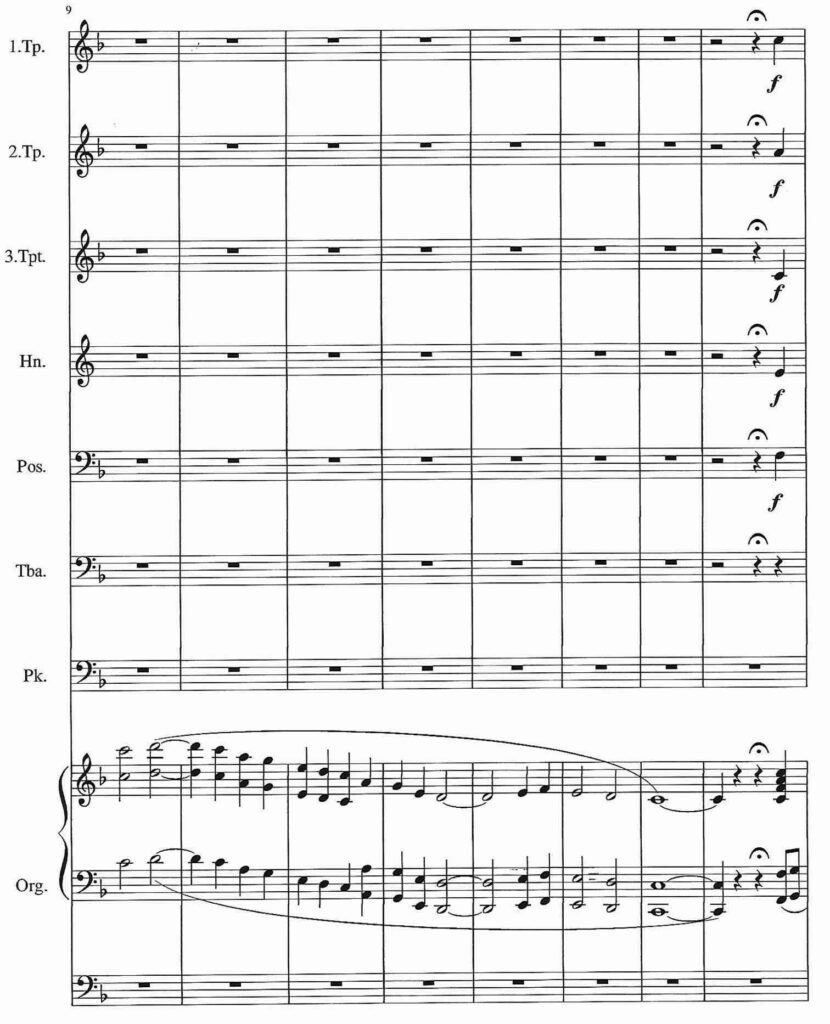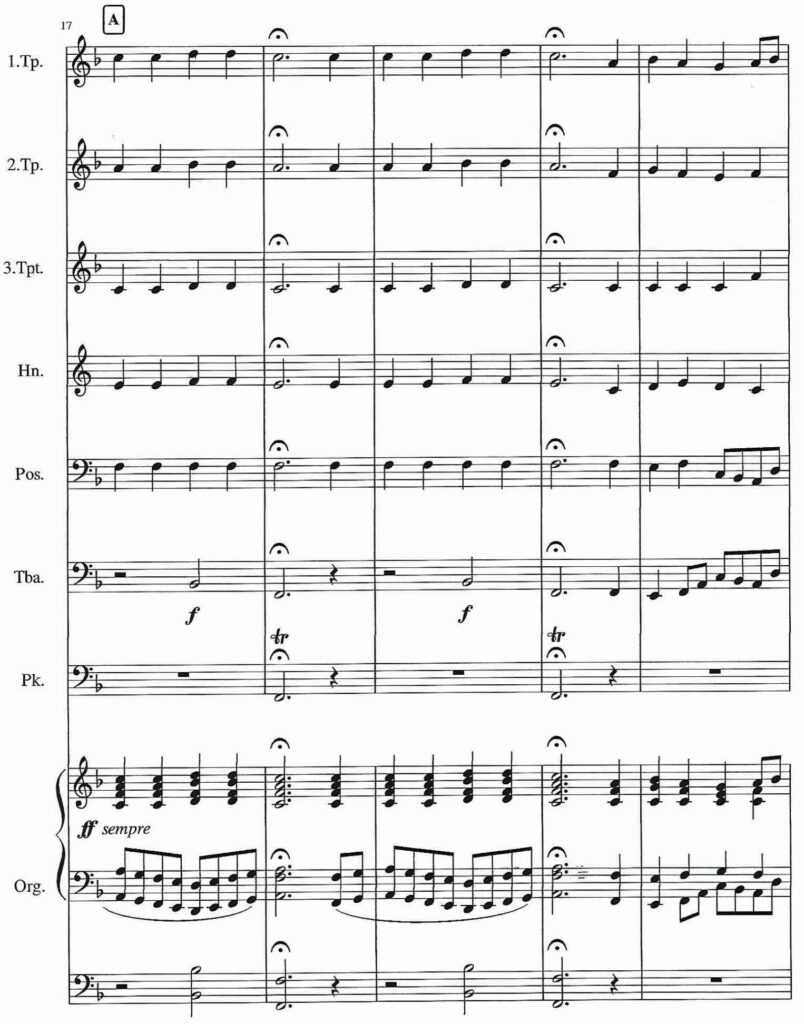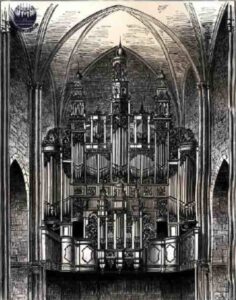Franz Liszt (1811-1886) Nun danket alle Gott / Now everyone thank God for organ and brass



Die musikalische Laufbahn von Franz Liszt begann als pianistisches Wunderkind und gipfelte als Klaviervirtuose, der ganz Europa bereiste. 1842 wurde Franz Liszt zum Großherzoglichen Kapellmeister in Weimar ernannt. Diese Jahre waren die künstlerisch produktivste Zeit Franz Liszts. Viele seiner Klavierwerke und sinfonischen Dichtungen schrieb er in Weimar, wie auch zahlreiche Transkriptionen und einige Werke für Orgel mit Posaune wie auch für Orgel mit Begleitung von Blechbläsern. Als Leiter der Weimarer Hofkapelle wurde Franz Liszt zum wichtigsten Förderer Richard Wagners. Den Choral „Nun danket alle Gott“ hat Franz Liszt zur Eröffnung der großen Orgel in Riga geschrieben und Seiner Exzellenz dem Herrn Geheimrat Doktor Carl Hase(1) ehrerbietigst gewidmet. Das Original – Weimar 1883 – sieht eine lange Orgeleinleitung vor, bevor Chor und Blechbläser mit Pauken den Choral anstimmen.

Franz Liszt’s musical career began as a pianistic child prodigy and culminated as a piano virtuoso who traveled all over Europe. In 1842 Franz Liszt was appointed Grand Ducal Kapellmeister in Weimar. These years were Franz Liszt’s most artistically productive period. He wrote many of his piano works and symphonic poems in Weimar, as well as numerous transcriptions and some works for organ with trombone and for organ with brass accompaniment. As conductor of the Weimar court orchestra, Franz Liszt became Richard Wagner’s most important supporter. Franz Liszt wrote the chorale “Now thank you all God” for the opening of the great organ in Riga and dedicated it to His Excellency Privy Councilor Doctor Carl Hase with the utmost respect. The original – Weimar 1883 – provides for a long introduction to the organ before the choir and brass start the chorale with timpani.
(1)Carl Hase (1800-1890) war evangelischer Professor der Theologie an der Universität Jena und großherzoglich-sächsischer Wirklicher Geheimrat. / Carl Hase (1800-1890) was a Protestant professor of theology at the University of Jena and a real privy councilor for the Grand Duchy of Saxony.
| sound sample / Tonbeispiel | score/parts PDF download: € 12,- | add to cart / in den Warenkorb |
